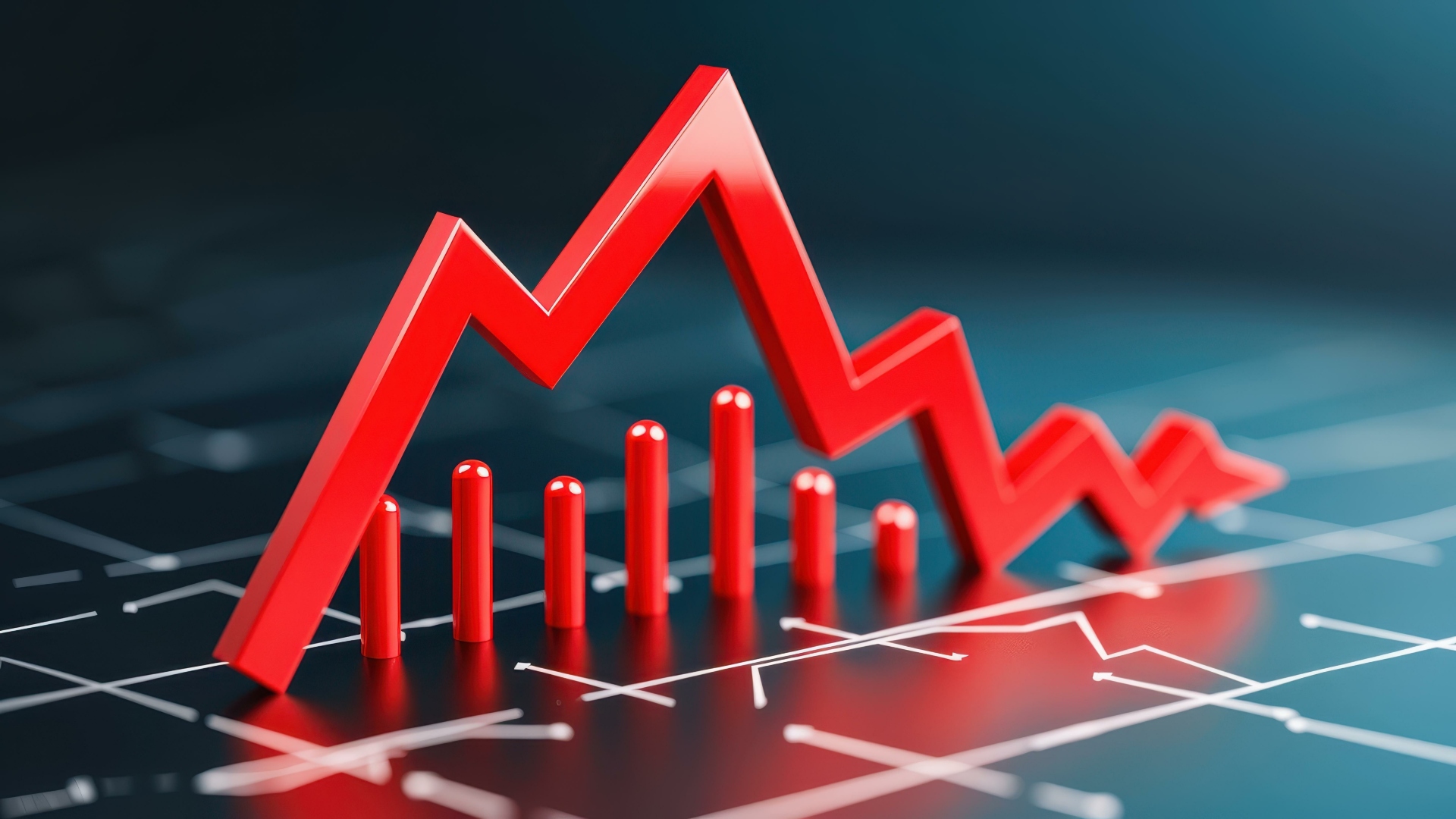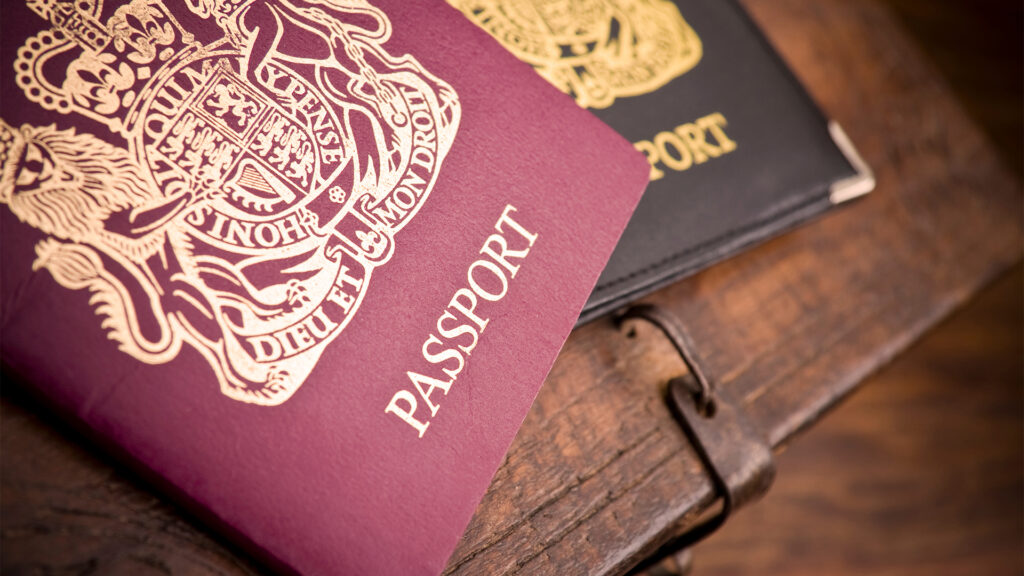Trump Tariffs Spark £2bn Market Plunge in UK Trading
Your investments could be facing a rocky road ahead as Trump tariffs have knocked a whopping £2bn off UK markets. The impact has been far-reaching, with the S&P 500 losing an eye-watering £7 trillion since reaching its peak in mid-February. Oddly enough, US stocks opened on a high note Wednesday morning, with the Dow jumping more than 800 points. At the same time, British shoppers are feeling decidedly gloomy, with confidence in the economy falling to its lowest point on record.
UK retail and businesses are feeling the squeeze more with each passing day. The British Retail Consortium has reported a sharp drop in consumer expectations for the economy during April, right when Donald Trump made his tariff announcements. Over in Norway, their sovereign wealth fund posted a negative return of 0.6% or 415 billion kroner (£29.9bn) in the first quarter of 2025. The outlook remains shaky despite a dozen US states banding together to challenge these trade measures through legal action. The FTSE 100 has stalled as the recent rally runs out of steam, pointing to ongoing market uncertainty that might hit your wallet and investment returns in the coming months.
Trump Tariffs Trigger £2bn Drop in UK Markets
Global financial markets have been thrown into chaos as Donald Trump’s tariff announcements send investors scrambling for cover. British shares have taken a serious hit, with mounting uncertainty about these trade measures stripping more than £2bn from UK market values.
FTSE 100 and FTSE 250 suffer sharp losses
The FTSE 100 slipped 0.3% while European and Asian markets tumbled for several trading days in a row. Worth noting is that the FTSE 100 started Wednesday down 0.5%, with Germany’s Dax easing 0.3% and France’s Cac sliding 0.4%. Big healthcare companies fell alongside their European counterparts, with the pharma and biotech index dropping 1.4% to hit its lowest point in nearly a month.
Several sectors got particularly battered:
Aerospace and Defence stocks topped the list of losers, falling 2.1%, with Rolls Royce tumbling 3% and BAE Systems sliding nearly 1%
AstraZeneca turned out to be the biggest weight on the blue-chip index, falling 1.2%
FTSE 100 group Bunzl saw its shares nosedive more than 25%, wiping £2bn off its market value
The strengthening pound added extra pressure on the export-heavy FTSE 100 as the dollar weakened ahead of tariff announcements. Meanwhile, Asian shares sold off overnight, with markets in Taiwan, Hong Kong and South Korea taking the worst knocks, dropping between 1.2% and 2%.
Investor sentiment shaken by tariff uncertainty
Investor confidence has taken a battering following Trump’s tariff wars. Funds platform Hargreaves Lansdown reported falling sentiment across all sectors this month after the US President sent “shockwaves” through markets.
The dollar has sunk to its lowest level in three years against other major currencies and is heading for its worst performance in the first four months of the year in 50 years. What’s more, asset manager City of London Investment Group saw £127 million flow out of its emerging markets funds between January and March amid “uncertainty relating to US tariff policy”.
The International Monetary Fund has cut its global growth forecasts, suggesting there’s a 40% chance of recession in the US. This has led to slashed growth expectations for several countries including the UK. Victoria Hasler at Hargreaves Lansdown put it plainly: “The extent and level of tariffs imposed sent shockwaves through markets”.
UK Retail and Business Sectors Brace for Fallout
British shops and small businesses are now feeling the squeeze as Donald Trump tariffs create waves through supply chains. You’ll soon be seeing the effects both at the checkout and in the longer-term shape of our high streets.
Retailers warn of rising import costs
The British Retail Consortium has raised the alarm that these tariffs could put a real dampener on your shopping habits, particularly for big-ticket items. Helen Dickinson, who heads up the organisation, didn’t mince her words: “Global uncertainties resulting from tariffs and a potential economic slowdown could reduce the appetite for shopping trips in the coming months”.
Shoppers are already tightening their belts. Deloitte’s recent survey found almost half (47%) of consumers are only buying essentials—that’s the highest level since they started keeping track in 2011. Price hikes are coming too, with tax experts calling them “inevitable.” Brad Ashton from RSM UK put it plainly: “Realistically, retailers will need to increase prices to protect margins”.
Retail stocks with American connections or Asian manufacturing bases have taken a real beating. Nike watched its share price tumble 14% after the announcement, mainly because they make trainers in Vietnam, China, and Indonesia—countries now facing tariffs up to 46%. What’s more, when BDO asked retail and wholesale businesses about the impact, 58% said they expect to be “directly affected to a significant extent” by these trade measures.
Small businesses face supply chain disruptions
Your local small businesses are particularly exposed to these trade tensions. Recent figures show shipments from China have dropped by 20-50% compared to last year, creating real headaches for procurement. Unlike the big players, these smaller outfits don’t have the resources or wiggle room to easily absorb these kinds of shocks.
Many small UK companies rely heavily on Chinese manufacturing and can’t simply switch to other suppliers overnight. The big corporations might be able to shift production to places like Vietnam, but smaller businesses often find these manufacturers prefer dealing with larger clients. This leaves your local enterprises facing three major challenges:
Costs going through the roof while profits shrink
Struggling to fulfil customer orders due to supply bottlenecks
Cash flow problems that could threaten their very survival
The numbers at stake are huge—US imports from China generate around £1.59 trillion in retail sales each year. Even partial disruption to this flow could seriously impact businesses throughout the UK supply chain, potentially putting jobs at risk and reducing investment in your local economy.
Trump’s Tariffs on UK Bed Retailers is Complex and Multifaceted
Want to understand how Trump tariffs are hitting UK businesses where it hurts? Look no further than your bedroom. The bed industry shows us exactly what’s happening across multiple dimensions. Mattress manufacturers are facing challenges that could shake up the entire sector.
Impact on UK Bed Retailers’ Costs
The imposition of a 25% tariff on steel and aluminum imports significantly increased the cost of these essential materials for UK bed manufacturers. As steel is a primary component in many bed frames and aluminum is used in some components, this tariff directly raised the production costs for UK manufacturers. For instance, UK Steel, the industry trade body, expressed deep concern over the 25% tariff, highlighting the potential for economic damage.
This increase in raw material costs would likely have been passed on to UK bed retailers through higher wholesale prices. Furthermore, the 10% baseline tariff on most goods imported from the UK added to the cost of other materials used in bed production, such as textiles and foam. These materials are crucial for mattress manufacturing, and a 10% tariff on their imports would have further inflated the overall production cost of beds in the UK.
Consequently, UK bed retailers faced a scenario where the cost of sourcing their products, both in terms of raw materials and potentially finished goods, had increased due to the US tariffs. Many sources indicated that tariffs generally lead to higher consumer prices.
Therefore, UK bed retailers likely faced the decision of whether to absorb these increased costs, which would impact on their profitability, or to pass them on to consumers, potentially affecting demand for their products.
Remember when shipping costs were manageable? Those days are gone. Container costs from Asia to Europe have exploded from £238.25 to between £9,529.92 and £14,294.88. One bed maker revealed a bed that cost retailers £250 in January 2019 now sets them back £335. It’s clear how tariffs are making existing inflation problems even worse.
Supply Chain Disruptions
Raw material shortages have created a perfect storm throughout the supply chain. Foam makers can’t get the chemicals they need, mainly because Europeans are driving and flying less, which reduces oil industry byproducts needed for production. Timber suppliers simply can’t keep up as US building and DIY trades are “sucking all the capacity”. The outlook isn’t rosy either – manufacturers think it could take a full 12 months before supply chains look anything like normal again.
Reduced Competitiveness
Martin Gill from Vispring points out that US trade makes up “about 15%” of their global turnover, with around 3,500 mattresses exported annually. But now UK exporters need to think hard about “the viability of the US as a destination for their goods” or cut their profit margins to stay competitive. This couldn’t come at a worse time, as only recently have 30% of manufacturers and 40% of suppliers seen their margins improve.
Impact on Consumer Spending
Your attitude towards buying a new bed has likely changed dramatically too. While 73% of you say you’d pay more for eco-friendly mattresses, the cost-of-living squeeze means there’s a limit – 40% would only pay 6-10% more. What’s telling is that despite all the price pressures, the average amount spent on mattresses only crept up slightly from £565 to £595. This shows we’re all becoming more cautious about spending as economic uncertainty grows.
Consumer Confidence Plummets Amid Trade Tensions
The shock waves from Trump’s tariff announcements have sent UK shopper confidence into a nosedive, hitting record lows. Recent surveys from early April paint a worrying picture of how British households are feeling as global trade tensions heat up.
BRC data shows record low economic outlook
Your fellow Brits are feeling distinctly pessimistic about the economy following Donald Trump’s tariff announcements. The British Retail Consortium-Opinium consumer sentiment monitor showed expectations for the economy over the next three months crashed to an alarming -48 in April, tumbling from -35 in March. At the same time, people’s outlook for their own finances took a hit, falling to -16 from -10 the previous month.
Helen Dickinson, Chief Executive of the British Retail Consortium, put it bluntly: “With fieldwork completed just days after Donald Trump’s ‘Liberation Day’ tariffs, it is unsurprising that consumer expectations for the economy plummeted to a record low”. The mood hasn’t brightened much even after the pause on many US tariffs, with business and consumer confidence still on shaky ground.
Spending patterns shift toward essentials
The way we’re shopping has changed noticeably during these uncertain times. A Deloitte survey found a record 47% of consumers now only spending on the bare essentials in the first quarter—the highest since they started keeping track in 2011.
What’s interesting is that despite all this doom and gloom, expectations for retail spending actually perked up slightly to +3 in April, climbing from 0 in March, thanks mainly to Easter shopping. Looking closer at how we’re spending:
Grocery shopping is set to increase the most, with over 40% of shoppers planning to spend more in coming months, jumping to 50% among the over-55s
Younger shoppers (Gen Z) are focusing their cash on eating out and health & beauty products
Nearly 70% of us now prefer products with the “Made in Britain” label
This swing towards British-made goods seems to be driven by worries about how import costs might hit your household budget. Almost two-thirds of people surveyed are concerned about how these growing global trade spats could affect their personal finances.
Market Analysts Predict Short-Term Volatility
The financial world is currently riding a rollercoaster as experts try to make sense of the long-term fallout from Trump’s tariff decisions. Investment specialists are calling for calm heads during what they’re describing as “crippling policy uncertainty” that has brought volatility back to credit markets.
Experts weigh in on potential recovery paths
The road to recovery might be longer than many hope. David Gibb, financial planner at Quilter Cheviot, points out that “stock markets continue to be incredibly volatile despite the announcement of a pause in ‘reciprocal’ tariffs,” adding that “this pause is only for 90 days so uncertainty is still very much present”.
If you’re approaching retirement, timing has become especially important:
Keep a close eye on annuity rates as they’re “often tied closely to long-term gilt yields”
Consider using your cash reserves first if you have a pension, giving your investments breathing room to bounce back
Helen Morrisey from Hargreaves Lansdown reminds us to take the long view: “Over time markets do recover. Taking knee-jerk reactions like changing investment strategy or stopping contributions risk crystallising losses”.
Currency and commodity markets react to tariff news
The currency markets have been anything but stable during this period. The dollar has dropped to its lowest point in three years against major currencies, with experts putting this down to the “increased likelihood of a US recession and higher inflation”.
It’s not all doom and gloom though – precious metals are shining bright as safe havens, with gold prices climbing above £2,382.48 per ounce. Mining stocks have enjoyed a 3% boost as investors look for safer places to park their money.
The interest rate landscape is shifting dramatically too. The Bank of England is now expected to make four cuts of 0.25 percentage points by this time next year, potentially bringing borrowing costs down to around 3.5%. Similarly, central banks across Europe are gearing up to cut their rates soon to shield their economies from tariff fallout.
But the storm clouds haven’t cleared yet. The International Monetary Fund warns that the trade war “will damage trade and business investment in most countries”, possibly pushing Germany into recession while putting China’s 5% growth target for 2025 at risk.
Conclusion
The shock waves from Trump tariffs have left their mark on Britain’s financial landscape, with the £2bn market drop showing just how quickly your investments can be knocked off course when global trade tensions flare up. The FTSE 100 and FTSE 250 have both taken significant hits, with aerospace, defence and healthcare stocks feeling the pinch the most.
UK retailers are now caught in a perfect storm. Import costs are climbing, supply chains are in disarray, and shoppers are keeping their wallets firmly closed. It’s the small businesses that are really struggling – especially those relying on overseas suppliers – as they simply don’t have the means to quickly change course when troubles arise.
Take a look at the bed industry and you’ll see these pressures playing out in real time. What were once manageable costs for raw materials like foam, springs and timber have shot through the roof. Manufacturers are finding it harder than ever to keep their profit margins healthy. While shoppers say they’re happy to pay more for quality, the reality of today’s cost-of-living squeeze tells a different story.
The most worrying sign? Consumer confidence has crashed to record lows. The British Retail Consortium-Opinium consumer sentiment monitor shows expectations for the UK economy tumbled to -48 in April, a dramatic drop from March. That said, spending on essentials hasn’t collapsed completely, and there’s a clear shift towards products made right here in Britain.
Financial experts are telling us not to panic, even as markets continue to swing wildly. Over time, markets tend to bounce back. Across Europe, central banks are getting ready to cut interest rates to shield their economies from more tariff fallout. You might want to use this moment to look again at your investment strategy, keeping your eyes on the long-term picture during these rocky economic times.





























